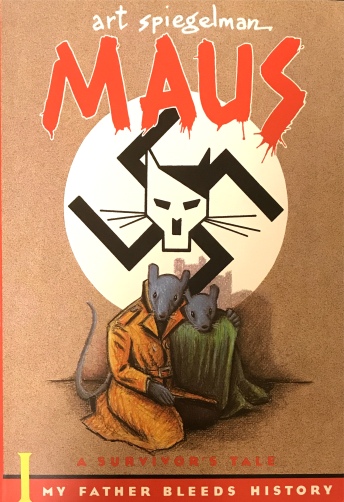Tracing Maus Reflection
When I was thinking about the pages that I chose for this assignment, I could not find any similarities and did not know what to write about. Then I decided to trace the chosen pages and during the process to notice some features that these two pages have in common. While I was engaged in the process of tracing them, I started noticing some details that I’ve never paid attention to before. This assignment helped me to better understand how big the tragedies were for Vladek and how they left a deep scar on his heart for the rest of his days. The tracing process itself was very unusual but I think I did pretty well. However, it took much longer to trace it that I thought. I spent a few hours on this assignment without even noticing how time flew. Additionally, for me, it was much easier to present my ideas in chunks like this, instead of writing in a more traditional format. However, I do not feel that this assignment helped me to get in on this secret language.
Overall, I highly enjoyed tracing and annotating pages and then linking the ideas between them.

Photo: scanned from Maus’ cover page



